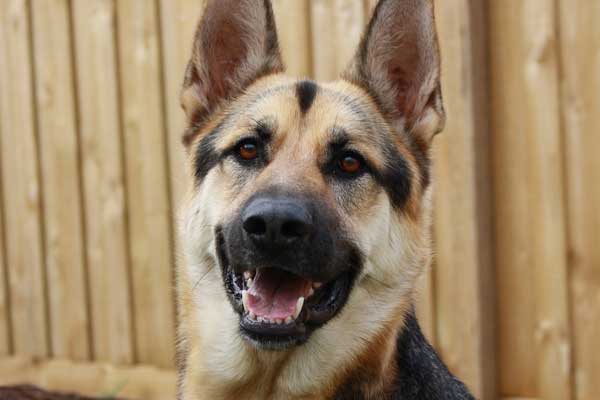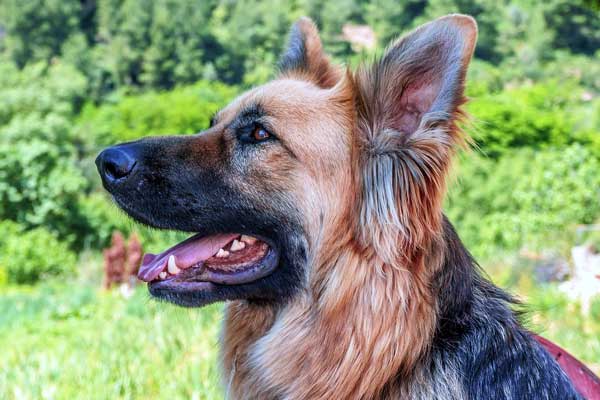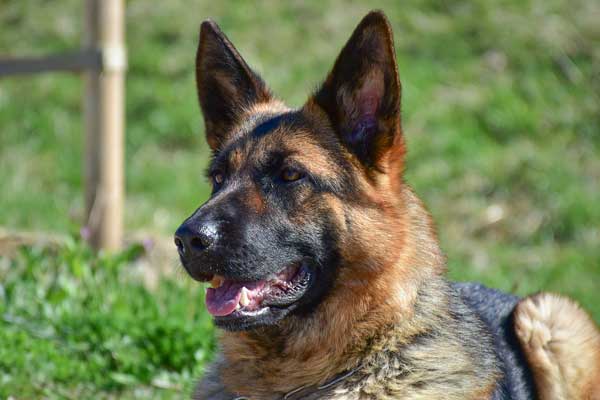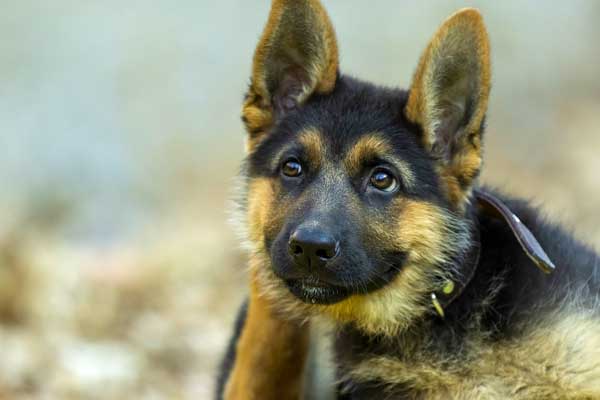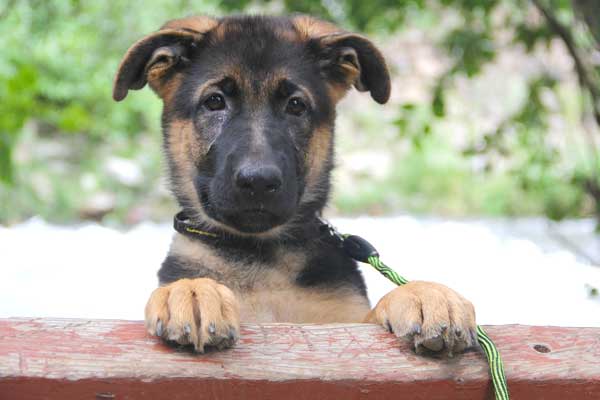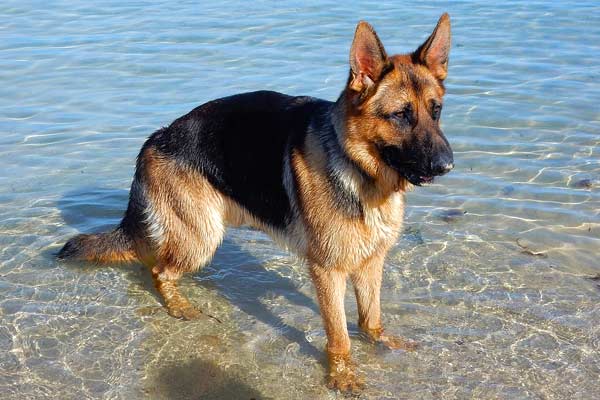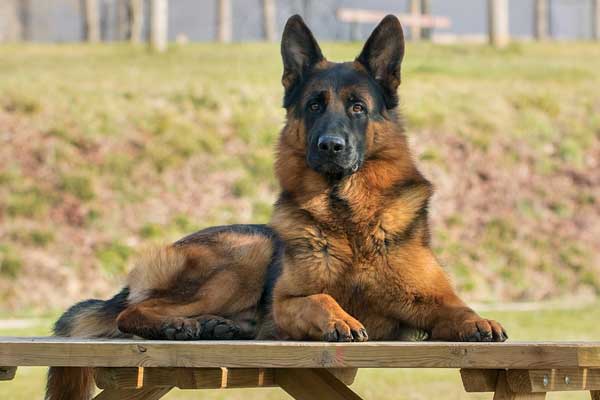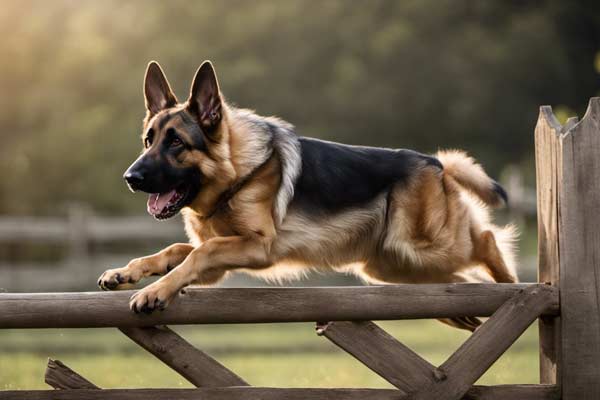German Shepherd Puppy Teething: Learn the Stages, Tips for Calming Discomfort
German Shepherds are among the most loyal and intelligent breeds, so it is no wonder they have become a popular choice for many dog owners.
But like all puppies, German Shepherd puppies go through teething stages that can be difficult to manage.
Teething can cause discomfort and even pain in your pup, as well as behavioral problems such as chewing on everything in sight!
In this blog post, we will discuss the various stages of German Shepherd puppy teething and provide helpful tips on how to help them get through it with minimal stress.
We’ll also explore what you should expect from the teething process, including when your pup will start losing baby teeth when their adult teeth come in and which toys are best for helping them cope during this period.
Finally, we’ll look at how to stop your German Shepherd puppy from destructive chewing while they are going through teething.
German Shepherd Puppy Teething Stages
German Shepherd puppies begin to get their primary (deciduous) teeth at 4-6 weeks old, with all 28 incisors, canines, and premolars already present.
This is then gradually replaced by the secondary (adult) teeth completed when the pup reaches 7 months old – resulting in a total of 42 adult teeth!
Make sure to give your dog the best dental care possible with regular brushing and check-ups to keep those pearly whites healthy and strong.
When Do German Shepherd Puppies Start Teething?
German Shepherd puppies typically begin teething between 6 and 8 weeks old.
During this period, their baby teeth will start to come out and be replaced by the adult set of teeth, which consists of canine teeth, incisors, premolars, molars, and the carnassial tooth.
Typically, the canine teeth and incisors are the first to come in at around 3 months of age. The premolars, molars, and carnassial tooth will start coming in by 6 months.
Signs of Teething in German Shepherd Puppies
Chewing on everything is a common symptom of puppy teething, especially for German Shepherd puppies. Chewing helps to relieve the pain that comes with new teeth erupting and to help explore their world.
German Shepherds, in particular, have strong jaws and need an outlet for their natural chewing instinct. This can include anything from wood or furniture to toys and even clothing.
Frequent Drooling is another common symptom of German Shepherd puppy teething. This is often caused by the sheer amount of saliva produced in response to the irritation of new teeth—their gums are swollen and extremely sensitive.
A Slow To Eat can be an indicator of teething in German Shepherds. New teeth can cause a lot of pain for puppies, making it hard to enjoy their food and making eating an unpleasant experience.
Bleeding, Red or Swollen Gums are all signs that your puppy is teething. Teeth eruption causes inflammation and irritation, leading to redness or even bleeding of the gum.
Whining A Lot is a normal response from puppies who are teething. This can be caused by anything from pain to hunger and should be taken seriously.
Visible Lost Teeth are a sign of puppy teething in German Shepherds. You may even find the baby teeth lying around as these teeth come in.
If you notice these signs in your German Shepherd puppy, they are likely teething. It’s essential to be aware of their discomfort and provide them with appropriate chew toys to help alleviate some of the pain associated with teething.
Best Advice to Support Your German Shepherds During Teething Period
Teething is a natural part of a puppy’s development, and understanding how to support your pup correctly will help make the experience as comfortable and painless as possible.
Many German Shepherd owners don’t know that their furry friend requires special attention during their teething period.
There are many ways to soothe and comfort your German Shepherd during teething, and here’s the best advice to get you started.
Start by offering your pup chew toys designed for their unique jaws and teething needs. The key is to find items that can be chewed on without any risk of breaking teeth or swallowing pieces.
There are many great options – plush toys, rubber toys, plastic toys, chew sticks, and rawhide bones. Make sure you have a few different kinds available so your pup can find the best one.
In addition to providing safe items for teething puppies to chew on, it’s crucial to ensure they’re getting adequate nutrition. Offer your pups frozen foods such as mini bagels, carrots, and fruit to give them a cold sensation that can help relieve discomfort.
You can even wet a dishrag or towel, twist it into a rope-like shape and freeze it for your GSD to enjoy!
Finally, keep an eye on your puppy at all times while they’re teething. Make sure they aren’t trying to chew on anything potentially dangerous, such as furniture or shoes.
Puppy-proof your home by removing items not meant for chewing and providing plenty of appropriate toys for your pup to enjoy instead!
When Do German Shepherds Lose Their Baby Teeth?
At around four months of age, German Shepherds will start to lose their baby teeth in a process known as teething. During this time, the 28 puppy teeth are replaced with 42 adult canine teeth, which include the molars.
This process is often accompanied by discomfort and irritability on the part of the dog, as it’s a natural and normal part of growing up. The good news is that most puppies are fully grown with their adult teeth by the time they reach six months of age.
So, if you’re looking for signs that your German Shepherd pup is ready to take on the world, look no further than their smile! Their shiny new adult teeth indicate that your dog is growing up and willing to take on whatever life throws.
Check for discomfort during this process, as it’s crucial to ensure your pup stays healthy and happy!
When Do German Shepherds Stop Teething?
Regular dental care is recommended to keep your German Shepherd’s teeth healthy. Most German Shepherds stop teething between 20 to 24 weeks of age, with some taking longer. Puppies typically have their complete set of adult teeth by 6 months old.
Best Teething Toys for German Shepherd Puppies
Teething toys help ease the discomfort of a puppy’s emerging teeth while also helping to prevent destructive chewing habits.
German Shepherds puppies are known for their strong and sharp teeth, so investing in the best teething toys is essential. While many toys are available, some are the best teething toys for German Shepherds puppies.
A Kong stuffed toy is one of the top teething toys for German Shepherd puppies. These durable and chew-resistant toys provide puppies with plenty of mental stimulation while allowing them to chew away safely.
The ergonomic design ensures that the puppy’s teeth have something to grip onto, and the hollow center can be filled with treats or peanut butter for extra stimulation.
Another great teething toy for a German Shepherd puppy is a rubber bone. These soft chew toys are made from safe materials and provide puppies with plenty of relief from teething pains. They also come in various sizes, making it easy to find the perfect fit for your pup.
You can go right with a chew rope toy. Chew ropes are designed with an assortment of textures that give puppies plenty of gnawing satisfaction while helping them maintain healthy teeth and gums. They also come in various sizes and colors, so you’re sure to find one that your pup loves.
How to Stop Your German Shepherd Puppy from Chewing When Teething
Some recommend giving puppies ice cubes and unique dog toys that can be frozen or wet washcloths to chew, which might help numb teething pain.
Although puppies need to chew on things, gentle guidance can teach your puppy to restrict chewing to appropriate objects, like toys.
If your German Shepherd puppy is going through teething and chewing everything in sight, it’s crucial to provide them with an outlet for their discomfort.
To help prevent destructive chewing, try giving them a few items that may soothe the pain associated with teething. Ice cubes are popular, as they can numb their gums and provide temporary relief.
If you catch your pup chewing on something inappropriate, remove the item and replace it with a toy.
By consistently providing them with appropriate things to chew on, they will eventually learn what is and is not acceptable.
Also, it’s essential to redirect your puppy’s attention away from objects not intended to be chewed and toward chew toys.
Finally, the most important thing you can do to help your German Shepherd puppy through teething is to provide a safe and loving environment for them.
Ensure your pup has plenty of exercise, playtime, and attention so they don’t need to chew undesired objects.

